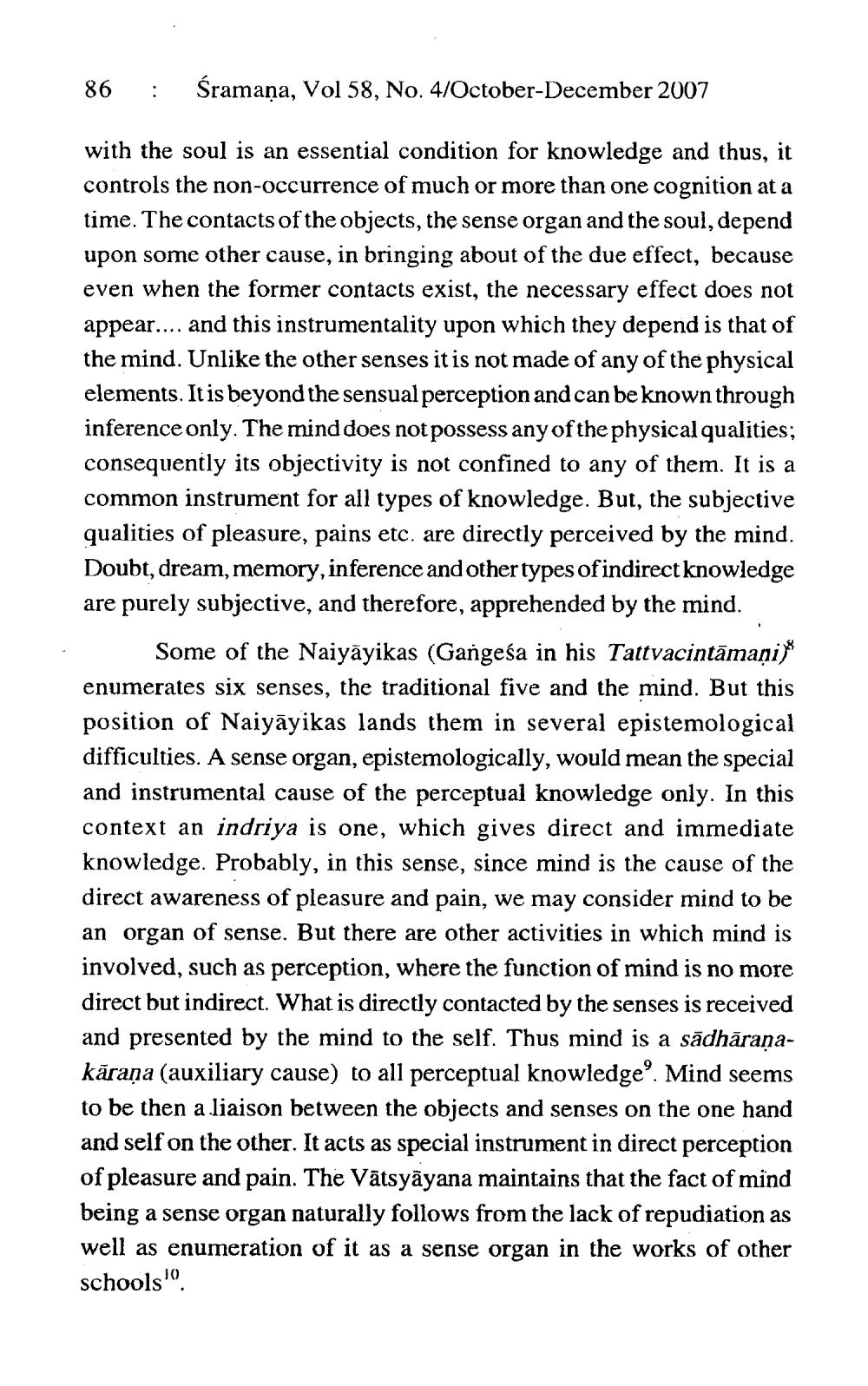________________
86 : Śramaṇa, Vol 58, No. 4/October-December 2007
with the soul is an essential condition for knowledge and thus, it controls the non-occurrence of much or more than one cognition at a time. The contacts of the objects, the sense organ and the soul, depend upon some other cause, in bringing about of the due effect, because even when the former contacts exist, the necessary effect does not appear.... and this instrumentality upon which they depend is that of the mind. Unlike the other senses it is not made of any of the physical elements. It is beyond the sensual perception and can be known through inference only. The mind does not possess any of the physical qualities; consequently its objectivity is not confined to any of them. It is a common instrument for all types of knowledge. But, the subjective qualities of pleasure, pains etc. are directly perceived by the mind. Doubt, dream, memory, inference and other types of indirect knowledge are purely subjective, and therefore, apprehended by the mind.
Some of the Naiyāyikas (Gangeśa in his Tattvacintāmaṇi) enumerates six senses, the traditional five and the mind. But this position of Naiyāyikas lands them in several epistemological difficulties. A sense organ, epistemologically, would mean the special and instrumental cause of the perceptual knowledge only. In this context an indriya is one, which gives direct and immediate knowledge. Probably, in this sense, since mind is the cause of the direct awareness of pleasure and pain, we may consider mind to be an organ of sense. But there are other activities in which mind is involved, such as perception, where the function of mind is no more direct but indirect. What is directly contacted by the senses is received and presented by the mind to the self. Thus mind is a sādhāraṇakāraṇa (auxiliary cause) to all perceptual knowledge". Mind seems to be then a liaison between the objects and senses on the one hand and self on the other. It acts as special instrument in direct perception of pleasure and pain. The Vatsyayana maintains that the fact of mind being a sense organ naturally follows from the lack of repudiation as well as enumeration of it as a sense organ in the works of other schools10.




